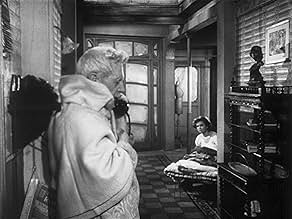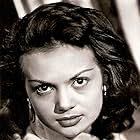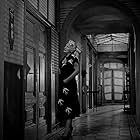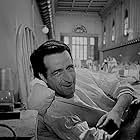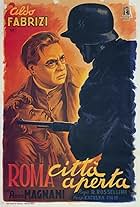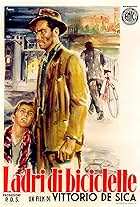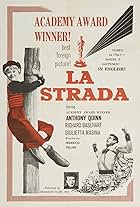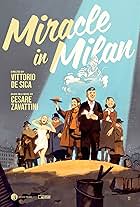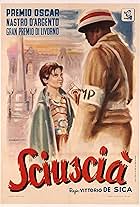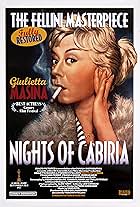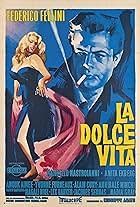An elderly man and his dog struggle to survive on his government pension in Rome.An elderly man and his dog struggle to survive on his government pension in Rome.An elderly man and his dog struggle to survive on his government pension in Rome.
- Nominated for 1 Oscar
- 3 wins & 3 nominations total
Alberto Albani Barbieri
- L'amico di Antonia
- (uncredited)
De Silva
- Battistini
- (uncredited)
- Director
- Writer
- All cast & crew
- Production, box office & more at IMDbPro
Storyline
Did you know
- TriviaThis is the first and only film for non-actor Carlo Battisti, who plays the leading role in the film. His real occupation was that of a Professor of Linguistics at the Università degli Studi di Firenze.
- GoofsNear the beginning when he is eating with the other old men he hands the plates of everyone near to him to the waitress. In the next shot everyone has plates in front of them again.
- Quotes
Maria, la servetta: What's the matter, Mr. Umberto?
Umberto Domenico Ferrari: I'm tired.
Maria, la servetta: Of her?
Umberto Domenico Ferrari: it's a little of everything.
- ConnectionsEdited into Histoire(s) du cinéma: La monnaie de l'absolu (1999)
Featured review
Vittorio DeSica's wonderful "Umberto D" was one of the last films of the Italian neo-realism movement and by far its best one. It is also one of my favorite movies ever. The movie's premise is simple: it is a slice of the life of a poor lonely pensioner, Umberto. Throughout the movie, we see Umberto struggle to find money to pay rent to his horrible landlady, love his dog Flike, and deal with the loneliness and disillusionment of the postwar era.
"Umberto D" is a character-driven film. It works very well because of its sharp observations on loneliness and poignant gestures. The gestures evoke powerful feelings without necessitating dialogue. Many of the scenes, even the ones that do not necessarily advance the plot, are hypnotically beautiful in their simplicity. Take, for example, a beautiful scene where Umberto finally needs to beg for money but cannot physically bring himself to do it. He extends his palm up, but when a passer-by stops to give him money, Umberto quickly flips his hand over, as if testing for rain. The film is full of these small gestures that quietly emphasize the desperate loneliness and poignancy of Umberto's situation.
The acting in this film is absolutely superb. Carlo Battisti, despite having never acted before, is wonderful as the titular character; his face is a fascinating blend of stubborn dignity and weariness of life. Maria Pia-Casilio, who plays the maid, is just as good as evoking life's loneliness and quiet desperation. The supporting cast is also very strong.
One of the very few criticisms I have heard of this film is that it is too sentimental and borderline sappy. While some scenes with Umberto and his dog Flike are sentimental, never is it "too" sentimental. DeSica knows how far he can push his film without making it sappy, and he wisely shows it as it is. Nothing feels forced. The subject material itself and the simplicity in which it is presented will bring tears. (If you don't cry in this movie, you need to have your heart professionally de-thawed.) But "Umberto D" is never dumbed down into sappiness and clichéd corniness. It is a very powerful film.
"Umberto D" is the masterpiece of the Italian neo-realist era. It's a rather bleak and very realistic movie, but it makes some fascinating commentary on the human condition, specifically the loneliness we face. Highly, highly recommended. 10/10.
"Umberto D" is a character-driven film. It works very well because of its sharp observations on loneliness and poignant gestures. The gestures evoke powerful feelings without necessitating dialogue. Many of the scenes, even the ones that do not necessarily advance the plot, are hypnotically beautiful in their simplicity. Take, for example, a beautiful scene where Umberto finally needs to beg for money but cannot physically bring himself to do it. He extends his palm up, but when a passer-by stops to give him money, Umberto quickly flips his hand over, as if testing for rain. The film is full of these small gestures that quietly emphasize the desperate loneliness and poignancy of Umberto's situation.
The acting in this film is absolutely superb. Carlo Battisti, despite having never acted before, is wonderful as the titular character; his face is a fascinating blend of stubborn dignity and weariness of life. Maria Pia-Casilio, who plays the maid, is just as good as evoking life's loneliness and quiet desperation. The supporting cast is also very strong.
One of the very few criticisms I have heard of this film is that it is too sentimental and borderline sappy. While some scenes with Umberto and his dog Flike are sentimental, never is it "too" sentimental. DeSica knows how far he can push his film without making it sappy, and he wisely shows it as it is. Nothing feels forced. The subject material itself and the simplicity in which it is presented will bring tears. (If you don't cry in this movie, you need to have your heart professionally de-thawed.) But "Umberto D" is never dumbed down into sappiness and clichéd corniness. It is a very powerful film.
"Umberto D" is the masterpiece of the Italian neo-realist era. It's a rather bleak and very realistic movie, but it makes some fascinating commentary on the human condition, specifically the loneliness we face. Highly, highly recommended. 10/10.
Details
Box office
- Gross US & Canada
- $71,816
- Gross worldwide
- $72,433
- Runtime1 hour 29 minutes
- Color
- Aspect ratio
- 1.37 : 1
Contribute to this page
Suggest an edit or add missing content







